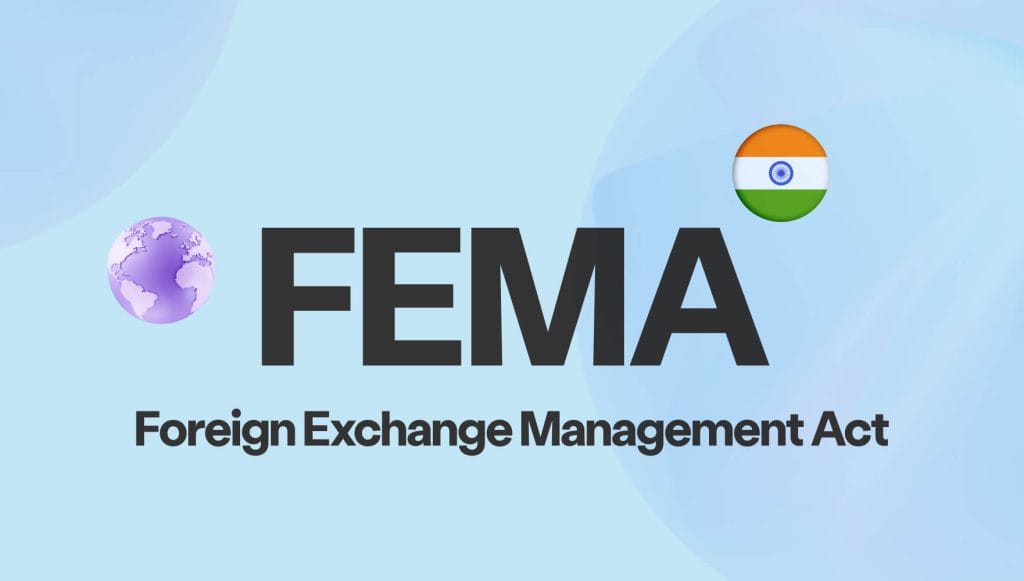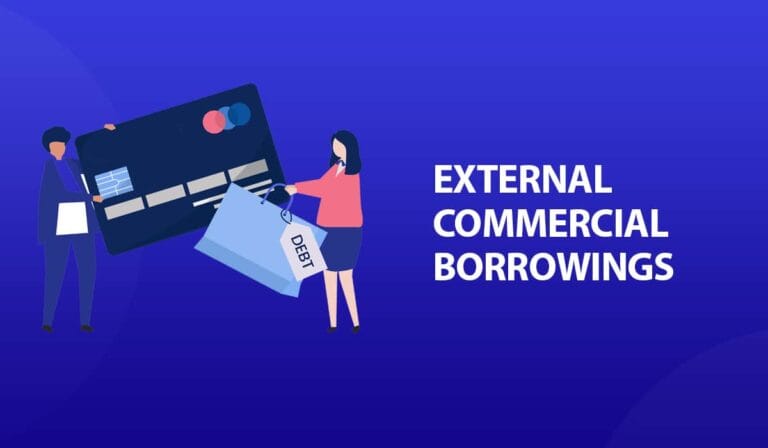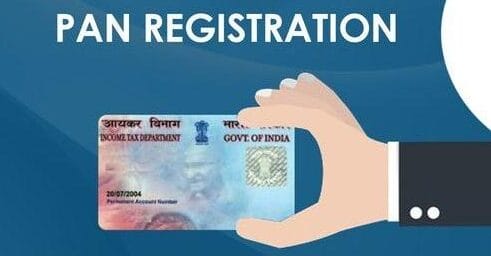The Foreign Exchange Management Act (FEMA), 1999, governs all foreign exchange transactions in India. FEMA consultancy services help businesses and individuals navigate the complex regulatory framework of foreign exchange transactions, ensuring compliance with the law, optimizing transactions, and managing risks associated with foreign exchange.
Importance of FEMA Consultancy
- Regulatory Compliance: Ensures that all foreign exchange transactions comply with FEMA regulations and RBI guidelines.
- Transaction Structuring: Helps in structuring foreign exchange transactions to optimize costs and benefits.
- Documentation: Assists in the preparation and submission of required documents to regulatory bodies.
- Risk Management: Identifies and mitigates risks associated with foreign exchange transactions.
- Advisory Services: Provides expert advice on various aspects of foreign exchange management, including investments, borrowings, and remittances.
Key Aspects of FEMA Consultancy
1. Foreign Direct Investment (FDI)
- Advising on FDI regulations, sectoral caps, and permissible routes (automatic or government approval).
- Assisting in the preparation and filing of required documents with the RBI and other authorities.
2. Overseas Direct Investment (ODI)
- Guiding on ODI regulations, permissible investments, and compliance requirements.
- Facilitating the process of investing abroad, including documentation and reporting.
3. External Commercial Borrowings (ECBs)
- Advising on the eligibility, permissible end-uses, and cost ceilings for raising ECBs.
- Assisting in obtaining necessary approvals and complying with reporting requirements.
4. Remittances
- Advising on regulations related to outward and inward remittances for various purposes.
- Assisting in compliance with the Liberalized Remittance Scheme (LRS) and other remittance guidelines.
5. Non-Resident Indian (NRI) Transactions
- Advising on investment opportunities and compliance requirements for NRIs.
- Assisting in the repatriation of funds and management of NRI accounts.
6. Liaison and Branch Offices
- Advising on the establishment and operation of liaison, branch, and project offices in India.
- Ensuring compliance with registration, reporting, and operational guidelines.
7. Export and Import Transactions
- Assisting in compliance with FEMA regulations for export and import transactions.
- Advising on trade documentation, invoicing, and realization of export proceeds.
8. FEMA Compliance Audits
- Conducting audits to ensure compliance with FEMA regulations and identify any gaps.
- Providing recommendations for corrective actions and improvements.
Process of FEMA Consultancy
1. Initial Assessment
- Conducting an initial assessment to understand the client’s foreign exchange transactions and compliance status.
- Identifying key areas of concern and regulatory requirements.
2. Documentation and Filing
- Preparing necessary documentation for foreign exchange transactions, investments, and borrowings.
- Filing required documents and forms with the RBI and other regulatory authorities.
3. Transaction Structuring
- Advising on the optimal structure of foreign exchange transactions to minimize costs and risks.
- Ensuring transactions are structured in compliance with FEMA regulations.
4. Compliance and Reporting
- Ensuring ongoing compliance with FEMA regulations through regular monitoring and reporting.
- Assisting in the filing of periodic returns and reports with the RBI.
5. Risk Management
- Identifying risks associated with foreign exchange transactions and implementing mitigation strategies.
- Advising on hedging and other risk management practices.
Key Considerations
- Regulatory Updates: Staying updated with changes in FEMA regulations and RBI guidelines.
- Professional Advice: Engaging professional consultancy services to navigate the complexities of foreign exchange management.
- Documentation Accuracy: Ensuring accurate and timely documentation to avoid regulatory issues.
- Continuous Compliance: Maintaining ongoing compliance with all relevant regulations to avoid penalties and legal issues.
FEMA consultancy services are essential for businesses and individuals involved in foreign exchange transactions. These services ensure compliance with regulatory requirements, optimize transaction structures, and manage associated risks. Professional consultancy provides the expertise needed to navigate the complexities of FEMA regulations, ensuring smooth and compliant foreign exchange operations.
At Ujjwal Gupta & Co
We, at Ujjwal Gupta & Co, are dedicated to delivering personalized, high-quality solutions tailored to meet your financial and business needs. With our team of professionals and a client-first approach, we ensure that every challenge is met with expert guidance and strategic insight.
We are dedicated to ensuring your business’s success by providing best service practice available in the industry and that too at a cost effective pricing. Our team of experts is excited to work with you and provide the support you need to thrive in the Indian business landscape.
Our only motive is to create Value for Our Clients and accordingly, have a Client Value System at our Office.
So, let us help you navigate the complexities of finance and compliance, empowering you to focus on what matters most — growing your business. Get in touch today, and take the first step towards financial peace of mind.
The Foreign Exchange Management Act (FEMA), 1999, is an Indian law regulating foreign exchange transactions, cross-border investments, and foreign trade to facilitate external payments and maintain forex stability in India. FEMA ensures compliance with foreign exchange rules and promotes orderly economic development.
FEMA Consultants assist individuals, businesses, and organizations in:
- Structuring foreign exchange transactions within FEMA guidelines.
- Advising on foreign investments (inward and outward).
- Assisting with RBI approvals and compliance filings.
- Resolving non-compliance issues and regulatory queries.
- Guidance on cross-border transactions and remittances.
FEMA Consultancy is crucial for:
- Companies with foreign investments (FDI).
- Entities raising funds through External Commercial Borrowings (ECB).
- Individuals making overseas investments or remittances under the Liberalized Remittance Scheme (LRS).
- Exporters, importers, and entities engaging in foreign trade.
Some of the major regulations under FEMA include:
- Foreign Direct Investment (FDI) regulations.
- External Commercial Borrowings (ECB) guidelines.
- Overseas Direct Investment (ODI) framework.
- Liberalized Remittance Scheme (LRS) for individuals.
- Regulations on export and import of goods and services.
The LRS allows Indian residents to remit up to USD 250,000 per financial year for purposes like:
- Education and medical treatment abroad.
- Travel expenses and gifts.
- Investments in foreign stocks, properties, and securities.
Non-compliance with FEMA regulations can lead to penalties under Section 13 of FEMA, 1999, such as:
- A monetary penalty of up to three times the amount involved.
- Seizure and confiscation of assets or properties.
- Further penalties for delayed or incorrect filings.
FEMA Consultants help businesses in:
- Advising on sectoral limits and FDI approvals.
- Filing Form FC-GPR for reporting foreign investments.
- Ensuring compliance with RBI and FEMA guidelines.
- Handling post-investment compliances like annual returns.
ODI refers to investments made by Indian entities in foreign businesses, including equity participation or joint ventures. FEMA regulates ODI through specific limits, reporting, and approval requirements. Consultants assist with filings like Form ODI and post-investment compliance.
Key reporting requirements under FEMA include:
- Form FC-GPR: Reporting foreign investments.
- Form FC-TRS: Reporting transfer of shares between residents and non-residents.
- Form ODI: Reporting overseas investments by Indian entities.
- ECB-2 Return: Monthly reporting of External Commercial Borrowings.
Under FEMA and RBI guidelines, remittances are allowed for purposes such as:
- Business and trade-related transactions.
- Education, healthcare, and travel expenses.
- Investments in foreign entities, stocks, and real estate (within limits).
- Gifts, donations, and maintenance of relatives abroad.
Why Choose UGC?

Client Centric Approach
Client is the key driver of our service offerings. Our approach to service offerings is based on a client centric and customized approach. Our specialized teams are a mix of technical and industry experience in order to serve clientele for their specific needs.

Team Work
We have built high performing teams supported by strong work ethic. Our team is a mix of experts, professionals and support staff from technical and varied academic, social and ethnic backgrounds. We believe diversification plays a vital role in motivating the team.

Quick Turnaround
We always endeavour for a quick turnaround time to serve our clientele. We are supported by an experienced and client focussed support teams to offer timely services to our clientele. In case of any business exigencies and time sensitive service requirements, you can always count on us.

Open Communications
We believe that open communication is the core principle in order to demonstrate trust, build long lasting and valuable relationships with clientele. We are committed to ensuring transparency in communication, service offerings and delivery. We provide professional services to our clients.

Client Value System
We value for the Client time and thus, we offer services that are value for money. Quality professional services are provided to our clients, so that they are able to achieve their desired results. We are a quality trademark in the industry and thus, our clients count on us always.

Quality in Delivering Work
Our service offerings are driven by quality and reviews at every level. We strive to provide a qualitative and value-added delivery to our clientele. At all times, we endeavour to provide exceptional client service by meeting client expectations and driving client satisfaction.















